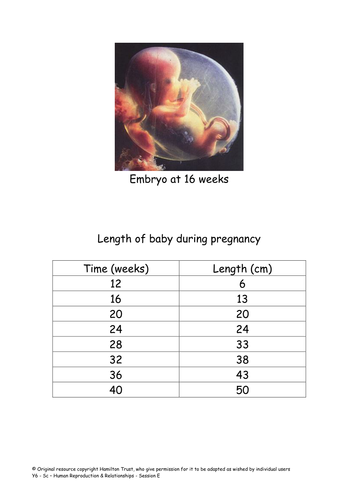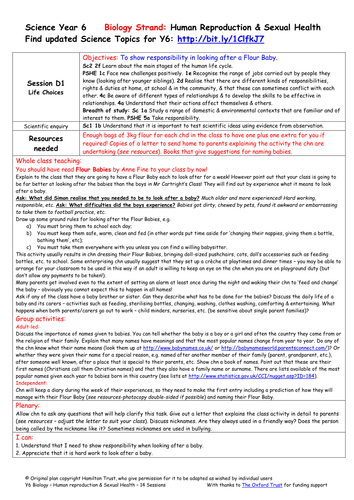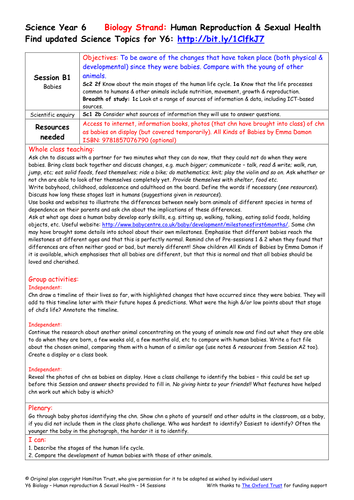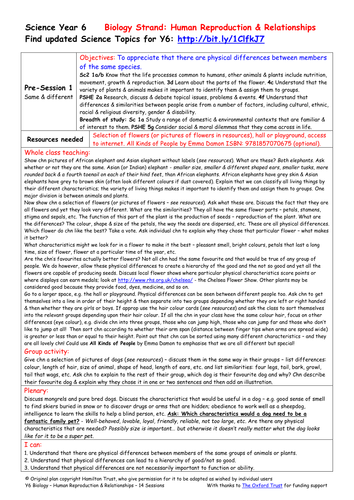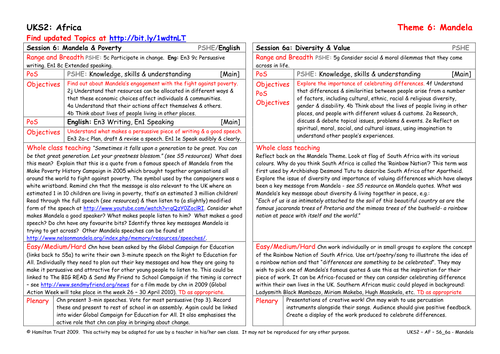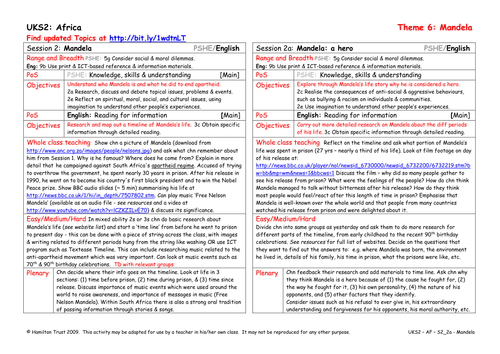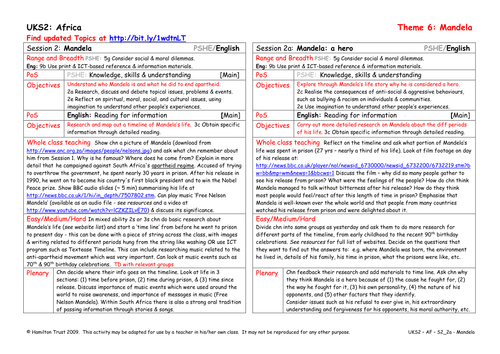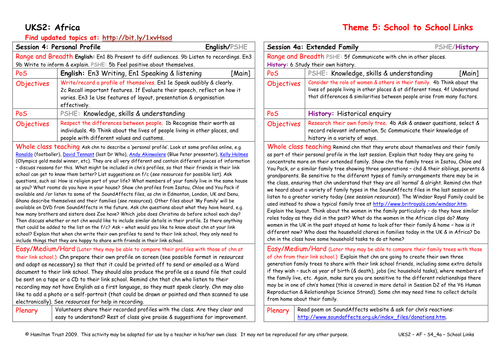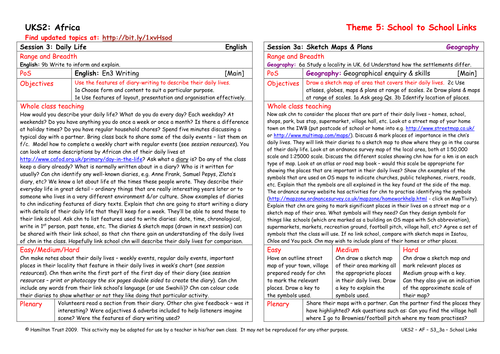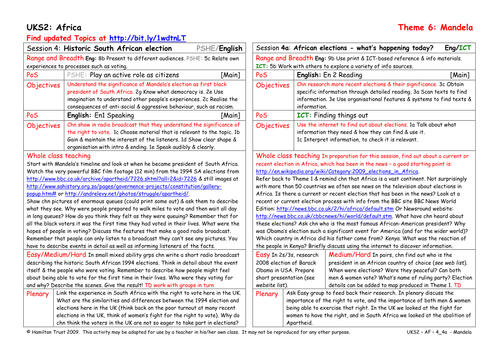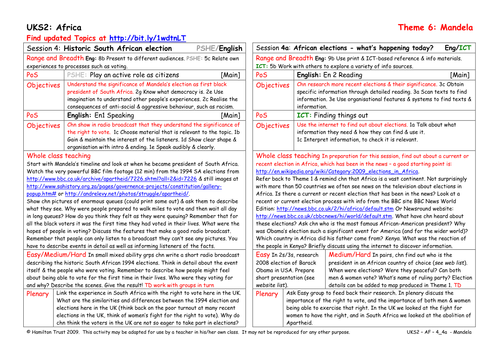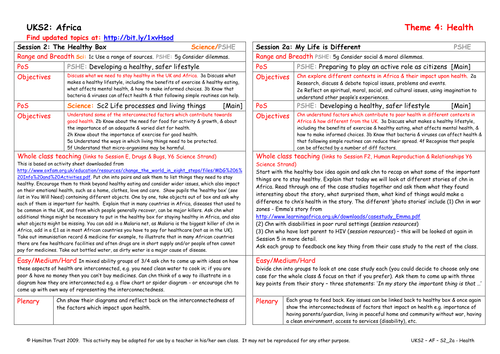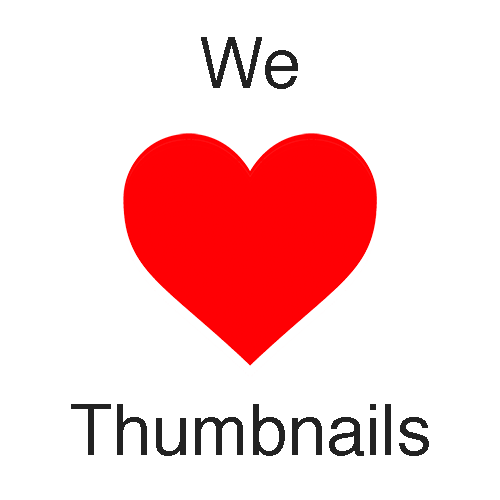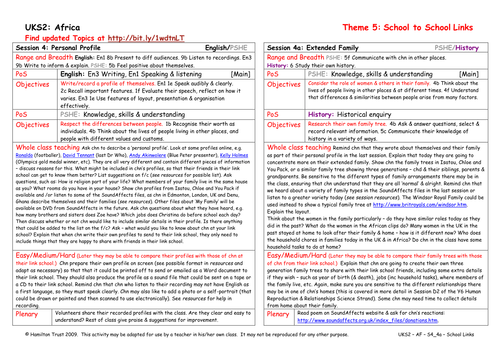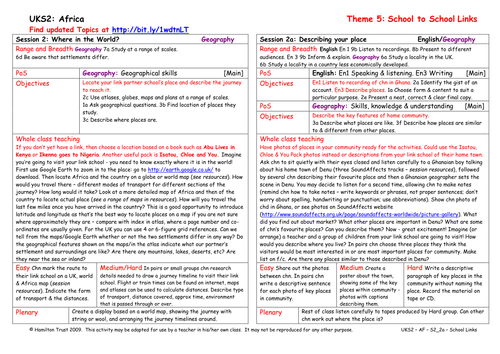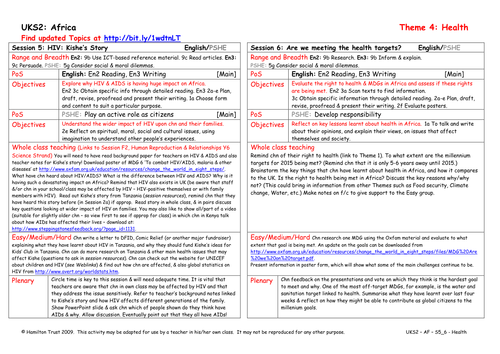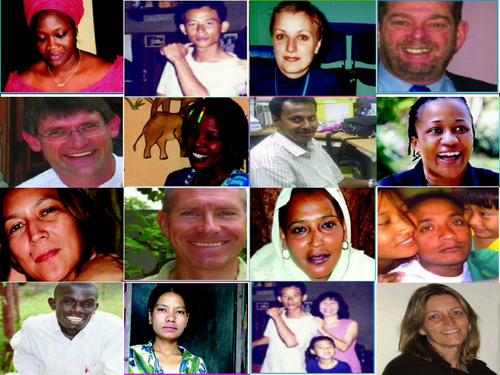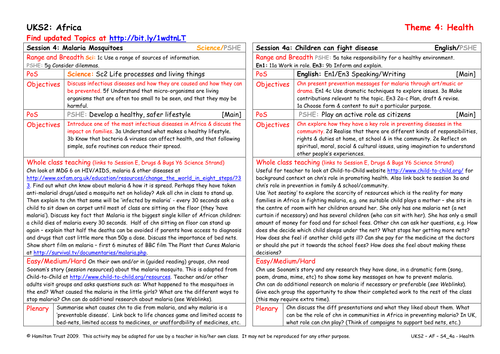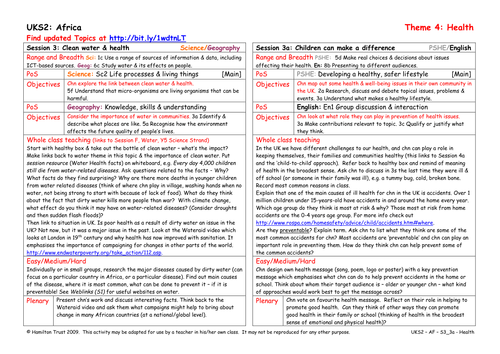
397Uploads
10041k+Views
11644k+Downloads
Cross-curricular topics

Pregnancy
Session 1 - Changes at puberty prepare our bodies to have children of our own. Look in more detail at human fertilisation and pregnancy and learn how important it is for mother-to-be to look after her health. Look at baby growth in utero and explain function of umbilical cord.
Session 2 - Watch a video of a birth and discuss other forms of delivery such as Caesarean or forceps deliveries. Discuss how the parents’ lives will now change and relate this to children’s Flour Babies experience. Research birth rites of passage in different cultures.
Suitable for Y6 pupils.

Life choices
Session 1 - Think about all the different relationships that children have/will have with other people, leading to a discussion about marriage. Research marriage customs in different cultures. Children return to timelines and predict hopes and expectations for their future lives.
Session 2 - Think about all the different relationships that children have / will have with other people, leading to a discussion about marriage. Research marriage customs in different cultures. Children return to timelines and predict hopes and expectations for their future lives.
Suitable for Y6 pupils.

Babies
Session 1 - Children consider the development that they have undergone since they were babies. Draw a timeline of their lives so far. Continue research into the life stages of another animal concentrating on how quickly the babies develop. Have a baby photo challenge!
Session 2 - Look at the proportions of a human adult as shown by Leonardo’s Vitruvian Man. Investigate the shape changes between a baby and an adult human, concentrating on the head to body length ratio. Measure and draw graphs. Sketch children and adults in proportion.
Suitable for Y6 pupils.

Same and different
The first two sessions are an introduction to the Strand.
Session 1 - Help children appreciate that there are many physical differences between plants and animals (including humans) that are not necessarily good or bad nor important to function or ability.
Session 2 - Look in more detail at differences between people living in Britain. Discuss our multi-cultural society. Share poems in We are Britain by Benjamin Zephaniah to inspire children to write poems about themselves. Can children recognise their own Wanted poster?
Suitable for Y6 pupils.

Diversity and Value
Through artwork/ poetry/song the significance of the ‘Rainbow nation’, and of valuing diversity, is celebrated.
Suitable for years 5 and 6.

Mandela: A Hero
Look in more detail at Mandela’s life and in particular share with children a film of his release from prison. Reflect on reasons why Mandela is considered a hero by so many people all over the world. Add further details to the timeline.
Suitable for years 5 and 6.

Mandela
Link apartheid to Mandela. Who he is, where he comes from, why he is so famous, right up to the present day. Use internet and books to find information about Mandela’s life and start to develop a time line as a useful tool to refer to throughout the theme.
Suitable for years 5 and 6.

Family Food
Consider where the food that we eat comes from. Grown at home, locally or in another country? Discuss food miles. Who does the shopping, cooking, washing up? Where does the water come from? Cook a meal/dish and write the recipe to send to your link school. Suitable for years 5 and 6.

Personal Profile
Use celebrity profiles to decide what children might include in their personal profile to introduce themselves to their link school friends. Listen to Ghanaian children describing themselves and their families. Prepare own profiles on screen or as recordings.

Sketch Maps and Plans
Sketch maps of the local area and plans of homes and other places will help their link school friends understand the children’s daily lives as described in their diaries. Look at OS maps and street plans. Children use symbols and a key to clarify their maps and plans.
Suitable for years 5 and 6.

African Elections
Africa is a large continent with over 50 countries – usually there is an election going on somewhere! Children research a current/recent election in Africa and/or the election of Barack Obama as President of USA. Discuss the significance of Obama’s election.
Suitable for years 5 and 6.

Historic South African election
Black Africans were very eager to vote in the 1994 South African election. Discuss the significance of Mandela’s election as the first black president in South Africa. Use historic film footage to show queues of voters and reactions to the election.
Suitable for years 5 and 6.

The Healthy Box
Explore with Children the basis needs to ensure good health, and how they are interconnected using the concept of a ‘healthy box’.
Suitable for years 5 and 6.

School's Out!
What do children do when they are not in the classroom? At playtimes, evenings and weekends? Discuss sport, games and hobbies. Write instructions for a playtime game or making a craft object to send to their link school friends. Try an African game or craft.
Suitable for years 5 and 6.

Extended Family
Now children are going to expand the information about themselves to include their family. They draw family trees. Discuss the role of women – do children’s mothers have the same role as their grandmothers or earlier generations? What about the African women?
Suitable for years 5 and 6.

Describing Your Place
Listen carefully to some children in Ghana describing their home town or use descriptions from your link school friends of their town. Imagine the teacher and some children from your link school are going to visit your town! Describe the places they should visit.
Suitable for years 5 and 6.

Are we meeting the health targets?
Reflect back on ‘Right to health and MDGs. Investigate how far children think their rights and the MDGs related to health are being met. Present a MDG in an interesting way.
Suitable for years 5 and 6.

HIV: Kishe’s Story
Return to MDG 6, and focus on HIV and AIDS. Children read a story of a young orphan, Kishe, and reflect on her life story and the wider impact of HIV across generations.
Suitable for years 5 and 6.

Children Can Fight Diseases
Children present through poetry, role play, song or dance, an action that can be taken to prevent malaria.
Suitable for years 5 and 6.

Children can make a difference
Children research what are key health issues for their own class. Focus on accidents and how they can be prevented. Understand concept of preventable and how children can play an important role in prevention
Suitable for years 5 and 6.

